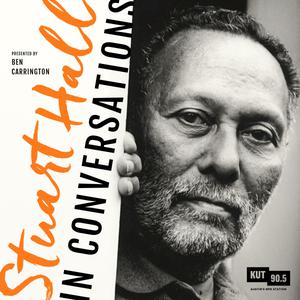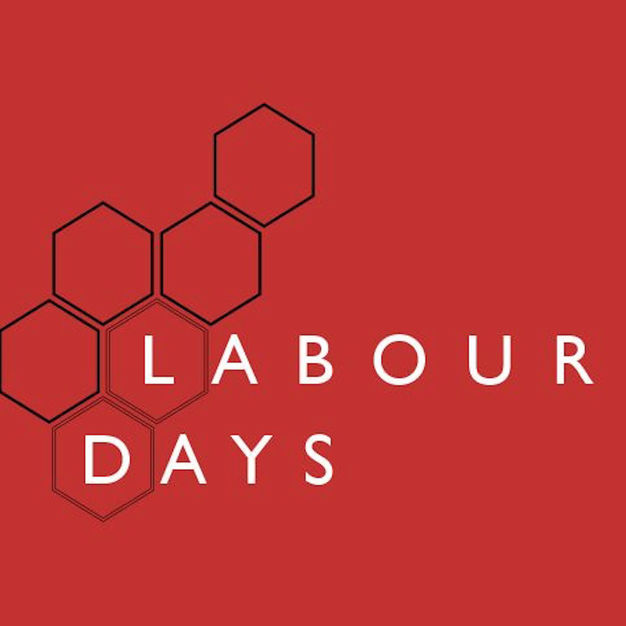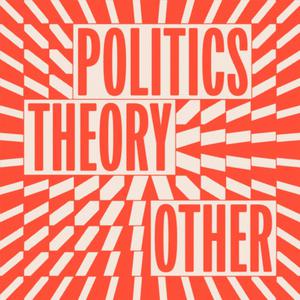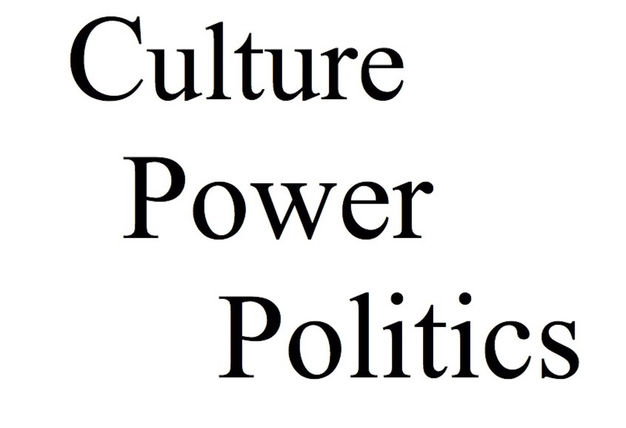
Radicals in Conversation
Pluto Press
- 1 hour 6 minutesTrans Femme Futures: Abolitionist Ethics for Transfeminist Worlds
With Nat Raha and Mijke van der Drift.
In our first episode of 2025, we discuss the themes of the new book, Trans Femme Futures: Abolitionist Ethics for Transfeminist Worlds.
We talk about what is entailed by trans and femme practices, the value of critical theory, and how trans liberation moves beyond the liberal call for rights. We discuss solidarity, abolitionism, and why it’s vital to sit with and work through complicity and friction within our movements.
Podcast listeners can get 40% off the book on plutobooks.com, using the coupon PODCAST at the checkout.
---
Nat Raha is a poet and Lecturer at Glasgow School of Art. She contributed to the collection Transgender Marxism. She has authored books of poetry, journal articles, and her writing has been translated into eight languages. She edits Radical Transfeminism zine.
Mijke van der Drift is Tutor at the Royal College of Art, London. Mijke's work on ethics has appeared in various formats in journals, performances, and sound pieces. Mijke edits Radical Transfeminism zine.
15 January 2025, 12:37 pm - 58 minutes 24 secondsRadicals in Conversation: 2024 Curated Highlights
Our 2024 roundup features curated highlights from episodes released throughout the year:
We speak to John Pring, about the British government’s Department for Work and Pensions, and its horrific work capability assessment. We speak to Robert Chapman, about why the neurodiversity movement emerged when it did, its successes, and the limitations of a liberal orientation under neoliberal capitalism. We speak to Rafeef Ziadah, Riya Al'Sanah and Katy Fox-Hoddess about international labour solidarity with Palestine, and the need to try and organise with workers inside the factories that are producing weapons bound for Israel. We also speak to Kalonji Jama Changa and Joy James about 'Cop Cities', and why the militarisation of policing necessitates a cognitive and strategic shift within our movements.
All the books featured on the show in 2024 are 40% off through plutobooks.com until the end of the year - use the coupon PODCAST at the checkout.
You can browse the full list of eligible books at: plutobooks.com/podcastreading.
12 December 2024, 2:16 pm - 1 hour 2 minutesBeyond the Ballot Box: Pacification and Intergenerational Memory in Social Movements
With Peter Gelderloos and Vicky Osterweil.
Whether it is in the fight against police violence, ecological destruction, or any other manifestation of patriarchal white supremacy, time and again, the hard-earned lessons of past struggles seem to get forgotten. Our social movements are capable of generating significant momentum, moments of far-reaching revolt, but we suffer from a kind of amnesia - an inability to pass on lessons learned from one generation to the next. And so each new wave of activism starts from scratch, disconnected from the strategies, successes, and failures of those that came before.
In this episode, we discuss the strategic imposition of nonviolence and other pacification techniques used by the state. We talk about revolutionary imagination, mutual aid, and what gets left out of official histories of struggle, from the Civil Rights era to the George Floyd uprisings. We discuss the need to make space for both joy and grief in our movements, and the importance of physical place to building collective memory.
---
Peter Gelderloos is a writer and social movement participant. He is the author of They Will Beat the Memory Out of Us: Forcing Nonviolence on Forgetful Movements, The Solutions are Already Here: Strategies for Ecological Revolution from Below, How Nonviolence Protects the State, Anarchy Works, The Failure of Non-Violence, and Worshiping Power: An Anarchist View of Early State Formation.
Vicky Osterweil is a writer, worker and agitator based in Philadelphia. She is the author of In Defense of Looting: A Riotous History of Uncivil Action (Bold Type Books) and an upcoming book about Intellectual Property and the corporate domination of culture, The Extended Universe, which is due to be published by Haymarket in 2025.
28 November 2024, 5:47 pm - 49 minutes 30 secondsWestern Complicity and the Human Cost of the Arms Trade in Gaza
With Ahmed Alnaouq, Andrew Feinstein and Anna Stavrianakis.
It has now been over a year since Israel embarked on its genocidal campaign in Gaza. In that time, hundreds of thousands of Palestinians have been killed or injured. Furnishing Israel with more than just diplomatic cover, Western governments have kept up a steady supply of military aid and equipment, actively enabling the wholesale slaughter of Palestinians. Our governments' complicity cannot be ignored or overstated.
At the heart of questions around how and why Britain and the US are continuing to arm Israel lies the international arms trade. Thinking more about how this corrupting, deadly industry operates, and how we might resist it, is vital - something that Palestinians understand only too well: one year ago, Palestinian trade unions reiterated their urgent global call to action, imploring workers across the world to halt the sale of weapons to Israel.
We are joined on the show by Ahmed Alnaouq, Andrew Feinstein and Anna Stavrianakis, to discuss how weapons sales to Israel function as a direct expression of state policy; how the arms industry corrupts our own democratic political processes; and the socio-economic opportunity cost of our governments' commitment to militarism. We also talk about the direct impact these weapons have had on life in Gaza, long before October 7th 2023; and the work that We Are Not Numbers is doing to give young Palestinians agency through sharing their stories.
---
Ahmed Alnaouq is a former Palestinian diplomat who served in the Palestinian Mission to the UK. He is the co-founder of We Are Not Numbers, which empowers Palestinian youth to share their stories globally. Ahmed holds a masters degree in International Journalism from Leeds University, and his work has been featured in media outlets including the Washington Post, the New Arab, and Gulf News.
Andrew Feinstein is the executive director of Shadow World Investigations. Andrew resigned as an African National Congress (ANC) Member of Parliament in South Africa in 2001, in protest at the government’s refusal to investigate corruption in a $10 billion arms deal. His first book, After the Party, reveals the impact of this deal. He also wrote the critically acclaimed book The Shadow World: Inside the Global Arms Trade, and worked on an award-winning feature documentary, Shadow World.
Anna Stavrianakis is director of research and strategy at Shadow World Investigations, and Professor of International Relations at the University of Sussex.
Ahmed, Andrew and Anna are all contributors to the new book, Monstrous Anger of the Guns: How the Global Arms Trade is Ruining the World and What We Can Do About It, which is available now from Pluto Press.
23 October 2024, 12:55 pm - 56 minutes 40 secondsResisting Cop Cities and the Militarization of Policing
What happens when the police become an army? Since 1997, the US Department of Defense has transferred more than $7.2bn in military equipment to law enforcement agencies. This militarization has, unsurprisingly, been shown to unjustly impact on Black communities and is associated with increased killings by police.
The Police Public Safety Training Center in Atlanta - more commonly known as 'Cop City' - is just the latest manifestation of the militarization of policing. It is a costly and controversial endeavor, being forced through by the local Democrat-run administration, in the face of widespread opposition among local communities. Resistance to the project has been met with spurious legal roadblocks, activist intimidation and violent repression.
But Cop City is far from being just a local issue; almost every US state now has a Cop City project of their own in some stage of development, and the logic, structures and ramifications of Cop Cities are truly international.
In this episode we are joined by Liliana, Joy James and Kalonji Changa to discuss the history of Cop Cities, the parallels with the notorious School of the Americas, and the ways in which the tactics and logic of US imperialism abroad are being brought to bear on working class and racialized communities at home.
---
Liliana is an immigrant from Colombia based in Houston, Texas. She is an abolitionist and has worked directly with prisoners on death row and their families. She is the co-host of the radio show 'Voz de La Tierra' on KPFT Pacifica, discussing the geopolitical effects of militarism, policing, imperialism, and racism on Indigenous, Black, and immigrant colonized communities across the globe.
Joy James is an organizer and author. Her recent books include In Pursuit of Revolutionary Love; New Bones Abolition: Captive Maternal Agency and the (After)Life of Erica Garner; and Contextualizing Angela Davis: The Agency and Identity of an Icon. She is the editor of Beyond Cop Cities: Dismantling State and Corporate-Funded Armies and Prisons, and the forthcoming ENGAGE: Indigenous, Black, and Afro-Indigenous Futures. Joy also works with the Guerrilla Intellectual University (GIU) podcast collective on Black Power Media (BPM).
Kalonji Jama Changa is an organizer and founder of the FTP Movement. He is the author of How to Build a People's Army and co-producer of the documentary Organizing Is the New Cool. Kalonji is founder of Black Power Media and serves as co-chair of the Urban Survival and Preparedness Institute.
9 October 2024, 12:42 pm - 53 minutes 1 secondBeyond the Ballot Box: On the Far Right with Mike Wendling
This is episode 1 of ‘Beyond the Ballot Box' - our new mini-series exploring some of the major political currents in US politics.
With the presidential election just around the corner, American politics is increasingly a focus of international attention as well. Electoralism, reproductive justice, the climate crisis, Palestine, a resurgent far right, the criminalization of protest, and the militarization of policing are all swirling in a maelstrom that is unlikely to abate, whatever the outcome on November 5th.
In this episode, series hosts Chris Browne and James Kelly sit down with Mike Wendling. Mike is US National Digital Reporter for the BBC, co-founder of the BBC's disinformation unit and the former editor and presenter of BBC Trending. Based in Chicago, he has decades of experience covering extremism, the American far right, social media and disinformation. He is also the author of Alt-Right: From 4chan to the White House and the new book, Day of Reckoning: How the Far Right Declared War on Democracy, which was published by Pluto earlier this year.
We talk about how the movement known as the ‘Alt-Right’ morphed over the years of the Trump presidency, in response to events such as the Covid-19 pandemic and January 6 Capitol riot. We talk about the ways in which conspiratorial thinking has bled from the fringes of the far right into the mainstream Republican movement, and the ways in which Donald Trump has reshaped the party and the wider political terrain. We get Mike’s reflections on the recent Republican and Democratic National Conventions, and the extent to which the assassination attempt on Trump and the substitution of Harris for Biden on the Democratic ticket have changed the electoral calculus, less than 2 months out from the election.
20 September 2024, 1:26 pm - 50 minutes 39 secondsThe Department: How a Violent Government Bureaucracy Killed Hundreds and Hid the Evidence
In the early 2010s, reports began to emerge of deaths linked to a government department. Suicide notes, coroners' reports, and research by disabled activists pointed to failings within the Department for Work and Pensions – the DWP – the government body responsible for the disability benefits system.
As years passed, and austerity tightened its grip, the death toll mounted, and an even more disturbing picture emerged: bureaucracy, politicians, and the private sector had combined over thirty years to reckless, deadly effect.
For the last decade, disabled journalist John Pring has meticulously pieced together how the DWP ignored pleas to correct fatal flaws in the social security system and covered up its role in the deaths of hundreds, if not thousands, of disabled people. Having spent years researching the heartbreaking stories of twelve individuals who died, he describes how their bereaved families have fought for justice and accountability.
In this month's episode, we speak to John about the idea of 'slow violence', how the pernicious myth of widespread benefit fraud was instrumentalised, and how a culture of cruelty and cover-up endured within the DWP over the course of successive governments.
Content warning: Suicide, traumatic death and severe mental distress
---
John Pring is founder and editor of the news agency Disability News Service. He is co-creator of the Deaths by Welfare timeline, and co-editor and specialist advisor on the award-winning Museum of Austerity project. He has written for mainstream publications including the Guardian, Observer, Daily Mirror and Private Eye, and was associate producer on the award-winning Dispatches documentary, The Truth About Disability Benefits. He is also the author of Longcare Survivors: The Biography of a Care Scandal.
20 August 2024, 3:27 pm - 54 minutes 39 secondsLabour Movement Solidarity with Palestine
At the time of recording, Israel’s relentless bombardment of Rafah continues. Around 1 million people have been forced to flee the city. Condemning the assault on Rafah, Spain, Ireland and Norway have joined 140 other countries in officially recognising a Palestinian state. It is a symbolic action that has undoubtedly damaged diplomatic relations between the three countries and Israel. Nevertheless, the destruction continues, the humanitarian crisis deepens, and people in Gaza have nowhere safe to go.
Many of us around the world have looked on in horror for the last seven months, watching a genocide being carried out, with many of our own governments actively complicit. In this month's episode, we consider the vital role that people in the international labour movement can play, leveraging their unions’ power to intervene directly.
We are joined by Rafeef Ziadah, a Senior Lecturer in Politics and Public Policy at King’s College London, and an organiser with Workers in Palestine; Riya Al'Sanah, an organiser and researcher with Workers in Palestine; and Katy Fox-Hodess, a Senior Lecturer in Employment Relations at the University of Sheffield, and a researcher and labour educator with Workers in Palestine.
Rafeef, Riya and Katy talk about the history of labour solidarity in the context of the Boycott, Divestment and Sanctions (BDS) campaign, Palestinian workers’ conditions in Gaza and the West Bank, and how trade unions can move beyond simply issuing statements in solidarity with Palestine. We discuss the ongoing university encampments, dockworkers and 'Block the Boat' actions, and the ways in which the Palestine solidarity movement can build coalitions with arms industry workers, to stop the flow of weapons to Israel.
Find out more about Workers in Palestine: workersinpalestine.org
28 May 2024, 2:48 pm - 1 hour 4 minutesConstellations of Care: Anarcha-Feminism in Practice
'Whether one is an anarchist or not, the contemporary turn of geopolitical events—from the global phenomena of pandemics, fascistic regimes, and collapsing infrastructure for any sort of social well-being, to capitalist-fueled climate catastrophes and displacement, to occupations spiraling into genocides—has compelled a shift toward prioritizing do-it-ourselves forms of taking good care of each other. Suddenly, the many anarcha-feministic practices that previously felt like “nothing” when people didn’t take the time or care to notice them—or worse, didn’t take the time or care to engage in those practices themselves—now feel like, and indeed are, everything.'—Cindy Barukh Milstein, Constellations of Care: Anarcha-Feminism in Practice
We are joined on the show this month by Cindy Barukh Milstein, editor of Constellations of Care, and Shuli Branson, a contributor to the anthology, and author of Practical Anarchism: A Guide for Daily Life. Cindy and Shuli explore the ways in which anarcha-feminist practices and care (in all of its guises) are vital to our efforts to resist militarism, fascism, ecocide, patriarchy and misogyny. They talk about the current wave of Palestinian solidarity encampments on university campuses, the importance of ritual and grief work, and the work being done by groups around bodily autonomy and trans-affirming care in the face of state attacks and abandonment.
Constellations of Care: Anarcha-Feminism in Practice is 40% off for podcast listeners on plutobooks.com. Use the coupon PODCAST at the checkout.
---
Cindy Barukh Milstein is a diasporic queer Jewish anarchist and longtime organizer. They've been writing on anarchism for over two decades, and are the author of Anarchism and Its Aspirations and Try Anarchism for Life: The Beauty of Our Circle. They edited the anthologies Rebellious Mourning: The Collective Work of Grief and Deciding for Ourselves: The Promise of Direct Democracy, among others.
Shuli/Scott Branson is a queer/transfemme Jewish anarchist writer, translator, community organizer, and teacher. They translated Jacques Lesage de la Haye’s The Abolition of Prison and Guy Hocquenghem’s Gay Liberation after May ’68, for which they also wrote a critical introduction on his queer anarchism. She coedited Surviving the Future: Abolitionist Queer Strategies with Raven Hudson and Bry Reed for PM Press. They are also a frequent co-host on the anarchist podcast The Final Straw Radio.
14 May 2024, 12:13 pm - 52 minutes 15 secondsEnough: Why It's Time to Abolish the Super-Rich
Forbes' annual rich list reveals that 2,781 people in the world have fortunes in excess of $1 billion. 141 people joined the list in 2023, with a combined wealth of around $14 trillion - a $2 trillion collective increase on the previous year. There are now more billionaires than ever before. It is a grotesque state of affairs, when we reflect on the misery and hardship that have been wrought by the cost of living crisis, soaring inflation, and years of stagnating pay and decaying public services. Clearly, amidst such stark inequality, there is an urgent need to do things differently.
That’s the argument made by Luke Hildyard in his new book, Enough: Why It's Time to Abolish the Super-Rich, which is out now from Pluto Press. Luke argues that far from being the hard-working and productive entrepreneurs that they claim to be, the super-rich are an extractive, parasitic force sucking up a vastly disproportionate share of society's resources – making the rest of us all poorer as a result.
Politicians make absurd promises about economic growth while ignoring the solution that's staring them in the face: a major programme of progressive taxation and economic reform that could be used to get the wealth of the one per cent flowing instead to the workers who actually create it.
Luke Hildyard is also the Director of the High Pay Centre, a UK think tank focused on pay, employment rights and responsible business.
Use the coupon PODCAST on plutobooks.com for 40% off the book.
8 April 2024, 11:49 am - 50 minutes 43 secondsOn Abolition Feminism with H.L.T. Quan
We’re excited to have H.L.T. Quan on the pod this month, as we publish her new book Become Ungovernable: An Abolition Feminist Ethic for Democratic Living.
Joined by Professors Barbara Ransby and Tiffany Willoughby-Herard, the conversation circles the themes of the book, exploring topics such as radical love, transformative justice, and ungovernability in the South African context, including during the struggle against Apartheid.
Become Ungovernable reveals the mirage of mainstream democratic thought and the false promises of liberal political ideologies, offering an alternative approach: an abolition feminism drawing on a kaleidoscope of refusal praxes, and on a deep engagement with the Black Radical Tradition and queer analytics.
As usual, podcast listeners can get 40% off the book, for the next month. Simply use the coupon PODCAST at the checkout on plutobooks.com.
8 February 2024, 5:50 pm - More Episodes? Get the App
Your feedback is valuable to us. Should you encounter any bugs, glitches, lack of functionality or other problems, please email us on [email protected] or join Moon.FM Telegram Group where you can talk directly to the dev team who are happy to answer any queries.
 KUT » Stuart Hall: In Conversations
KUT » Stuart Hall: In Conversations
 Labour Days: a labour movement podcast
Labour Days: a labour movement podcast
 Media Democracy Pod
Media Democracy Pod
 Suite (212)
Suite (212)
 Politics Theory Other
Politics Theory Other
 Culture, Power and Politics » Podcast
Culture, Power and Politics » Podcast